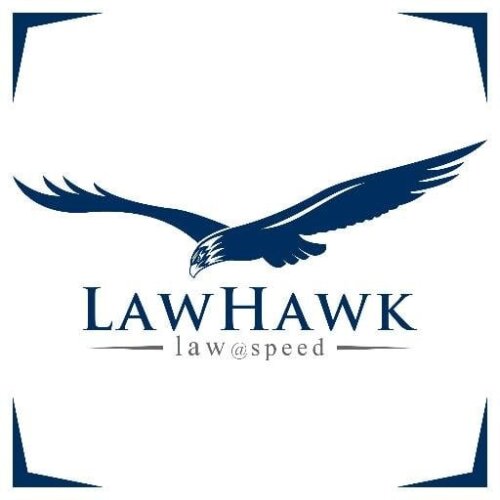Best Technology Transactions Lawyers in New Zealand
Share your needs with us, get contacted by law firms.
Free. Takes 2 min.
Or refine your search by selecting a city:
List of the best lawyers in New Zealand
About Technology Transactions Law in New Zealand:
Technology Transactions law in New Zealand deals with the legal aspects of transactions involving technology, such as software licenses, intellectual property rights, data protection, and more. It aims to protect the rights of parties involved in such transactions and ensure that they comply with relevant laws and regulations.
Why You May Need a Lawyer:
You may need a lawyer for Technology Transactions in New Zealand to ensure that your rights are protected, contracts are properly drafted, and compliance with local laws is maintained. Common situations where legal help may be necessary include negotiating software licenses, drafting terms of service agreements, handling data privacy issues, and resolving disputes related to technology transactions.
Local Laws Overview:
Some key aspects of local laws relevant to Technology Transactions in New Zealand include the Privacy Act, the Copyright Act, the Contract and Commercial Law Act, and the Electronic Transactions Act. These laws govern aspects such as data protection, intellectual property rights, contract formation, and electronic transactions in technology transactions.
Frequently Asked Questions:
1. What is a technology transaction?
A technology transaction involves the transfer, licensing, or use of technology-related services, products, or intellectual property.
2. How can a lawyer help with technology transactions?
A lawyer can help advise on legal issues, negotiate contracts, draft agreements, protect intellectual property rights, and resolve disputes related to technology transactions.
3. What are common issues in technology transactions?
Common issues include data privacy concerns, intellectual property infringement, breach of contract, and disputes over licensing agreements.
4. How important is it to comply with local laws in technology transactions?
Compliance with local laws is crucial to avoid legal issues, maintain trust with customers, protect intellectual property rights, and ensure the enforceability of contracts.
5. Do I need to register my technology transactions with any governmental bodies?
The need to register technology transactions with governmental bodies depends on the specific transaction and the applicable laws. Consult with a lawyer for guidance on registration requirements.
6. What is the role of intellectual property rights in technology transactions?
Intellectual property rights play a crucial role in technology transactions by protecting creations such as software, patents, trademarks, and trade secrets. Ensuring proper protection and licensing of these rights is essential.
7. Can technology transactions be conducted internationally?
Yes, technology transactions can be conducted internationally, but it is essential to consider the legal implications of cross-border transactions, such as differing laws on data protection, intellectual property rights, and contract enforcement.
8. How can I protect my data in technology transactions?
You can protect your data in technology transactions by implementing data protection policies, encryption measures, access controls, and by including data protection clauses in contracts.
9. What should I do if there is a breach of contract in a technology transaction?
If there is a breach of contract, you should consult with a lawyer to review the terms of the contract, assess damages, negotiate a resolution, and determine the best course of action to enforce your rights.
10. How can I find a lawyer specializing in technology transactions in New Zealand?
You can find a lawyer specializing in technology transactions in New Zealand by researching law firms, seeking recommendations from colleagues or industry associations, and conducting interviews to assess their experience and expertise in this field.
Additional Resources:
For additional resources related to technology transactions in New Zealand, you can consult the Ministry of Business, Innovation, and Employment (MBIE), the New Zealand Law Society, and industry-specific organizations such as the New Zealand Tech Alliance.
Next Steps:
If you require legal assistance in technology transactions in New Zealand, the first step is to consult with a qualified lawyer specializing in this field. They can provide guidance tailored to your specific needs, draft contracts, negotiate agreements, protect your rights, and help resolve any legal issues that may arise in technology transactions.
Lawzana helps you find the best lawyers and law firms in New Zealand through a curated and pre-screened list of qualified legal professionals. Our platform offers rankings and detailed profiles of attorneys and law firms, allowing you to compare based on practice areas, including Technology Transactions, experience, and client feedback.
Each profile includes a description of the firm's areas of practice, client reviews, team members and partners, year of establishment, spoken languages, office locations, contact information, social media presence, and any published articles or resources. Most firms on our platform speak English and are experienced in both local and international legal matters.
Get a quote from top-rated law firms in New Zealand — quickly, securely, and without unnecessary hassle.
Disclaimer:
The information provided on this page is for general informational purposes only and does not constitute legal advice. While we strive to ensure the accuracy and relevance of the content, legal information may change over time, and interpretations of the law can vary. You should always consult with a qualified legal professional for advice specific to your situation.
We disclaim all liability for actions taken or not taken based on the content of this page. If you believe any information is incorrect or outdated, please contact us, and we will review and update it where appropriate.
Browse technology transactions law firms by city in New Zealand
Refine your search by selecting a city.









